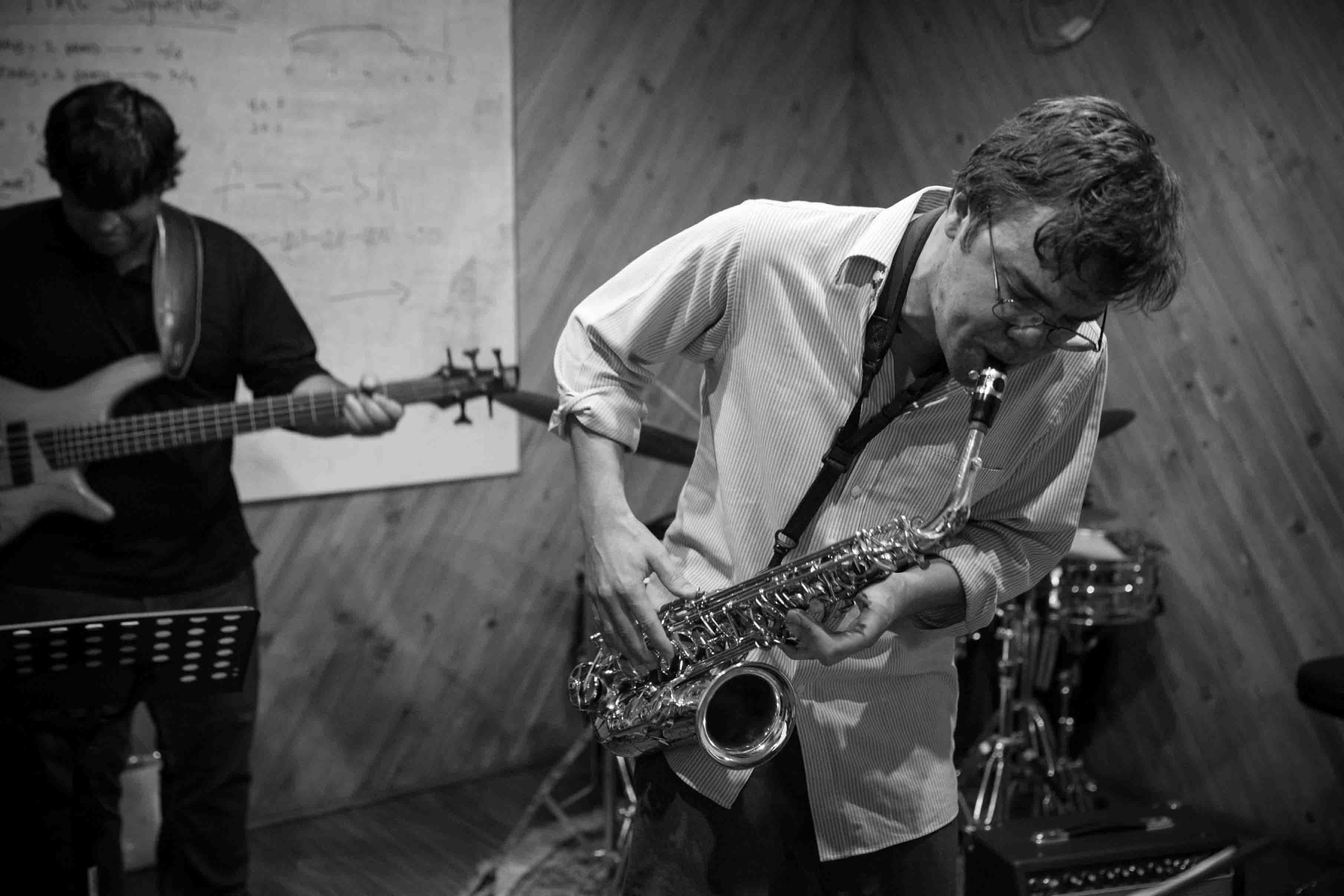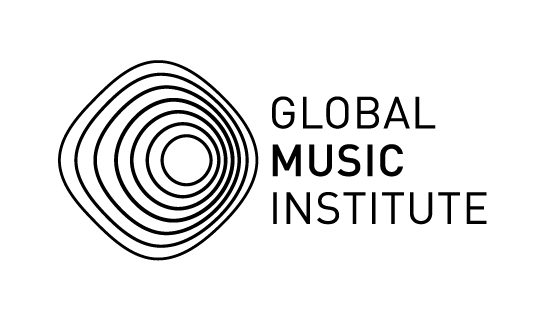
11 Nov GMI and me
I feel very fortunate to have taught at the Global Music Institute during their 2013 Summer Semester. I had long desired to travel to India to hear the sounds, taste the food and experience the history that I had been interested in back home in the States. My three months in Delhi at GMI brought all of those aspirations to the forefront, but with an added bonus, I had the opportunity to teach music to engaged students and interact with some of the city’s active musicians.
Delhi is a city, by some estimates, containing 18 million people and an equally massive musical legacy. I was surprised by the current music scene in Delhi when I first arrived. I am not referring to traditional Indian classical music, but rather the Western-centric paradigm. It was much smaller than I expected and without the musical diversity of many cities in the American Northeast that I have spent time in. The question I asked myself was, why? I found out that music education at the tertiary level in Delhi is for the most part not intensive, focused primarily on traditional classical music. India’s long history of music training is based on a lifelong guru-shisya template, a deeply personal teacher-disciple learning process. This system does not lend itself to large class sizes or homogenized curricula, and I believe this in part transfers into the general psyche of the learning approach of Western-centric music.
It is for this reason that GMI plays such a critical role in India’s capital. GMI seamlessly blends this tried and true guru-shisya model with a Western, modern approach to teaching, learning, creativity, experimentation and curriculum development. I found students, already with a high degree of facility on their instruments and performance experience under their belt, eager every day to dive into new material. The learning environment at any school is one of the most important factors to a successful educational experience, and GMI has that friendly vibe, everyone hanging with each other, playing with each other, all sharing and working together. I am reminded of one of India’s great musicians and poets, Rabindranath Tagore, who wrote that, “Everything comes to us that belongs to us if we create the capacity to receive it.” I believe GMI is helping in an important way to create that capacity, both institutionally and on a personal student level.
Noam Chomsky, one of the great intellectuals alive today and an educator himself, has said that “the highest goal in life is to inquire, create, search the riches of the past to try to internalize the parts of them that are significant to you, carry that quest for understanding further in your own way. The purpose of education from that point of view is to help people determine how to learn on their own.” I have always believed this to be my principle goal as an educator, and whether in school or not, we are all learning throughout the course of our life. What better goal than to illustrate how to learn, how to process new information and translate that into meaningful, relevant material to use in our own life, our own language. These tools to process and distill information do not come quickly or easily, but I believe music is an exemplary framework within which to explore and learn these skills. I am a saxophone player, but many of my students were not saxophone students. My time at GMI was especially enjoyable because of this, because it took the technical aspects out of the equation and focused the discussion on the foundations of what makes music so damn cool.
At the same time that I was teaching, I was also exploring myself. India was a new and exciting experience. Years of dreaming what the country would casino feel like, and here I had the opportunity to find one-of-a-kind places and talk to interesting people in the middle of it all. Tagore, endowed with awesome poetic lyricism, wrote that “the highest education is that which does not merely give us information but makes our life in harmony with all existence.” And as I walked around the streets, I found myself attempting to apply Tagore’s words and embody my own teaching philosophy in an effort to engage in the vibrant, active life of Delhi.
I had many great lessons, classes and ensembles, each with its own memorable moments. One lesson stands out to me, because it was proposed by one of my private students. An electric bass player, he wanted to know about he formal construction of Stravinsky’s Rite of Spring. We had a great lesson and the hour or so of its duration was of course not enough time to explore the many facets of this complex composition, yet he was engaged, I was engaged, and it was fun. It took a lot of initiative on his part to seek out this difficult orchestral music from 100 years ago, extract the important information contained within it, and apply it to his own work in the jazz and pop worlds. Again, Chomsky says that, “the person who wins the Nobel prize in biology is not the person who read the most journal articles or took the most notes on them. It’s the person who knew what to look for, and cultivating that capacity to seek what’s significant, always willing to question whether you’re on the right track – that’s what education is about.” Incidentally, one of this year’s Nobel prize winners, biochemist Tom Südhof, cites his most influential educator as his bassoon teacher.
So I have to say that GMI has it right. They fill a hole in the city’s music education umbrella that is vastly under-represented, and they take care to not reject any music, but by the act of inclusion create well-rounded students who have the ability to make connections on their own, who take charge, ask questions and just create. It was a pleasure to be a part of that energy generated by the school’s community, if only for a few months, and I hope I can return again one day. As Tarun Balani, GMI artistic director, said many times: “It’s all about the vibe.” GMI certainly has a vibe.



Sorry, the comment form is closed at this time.